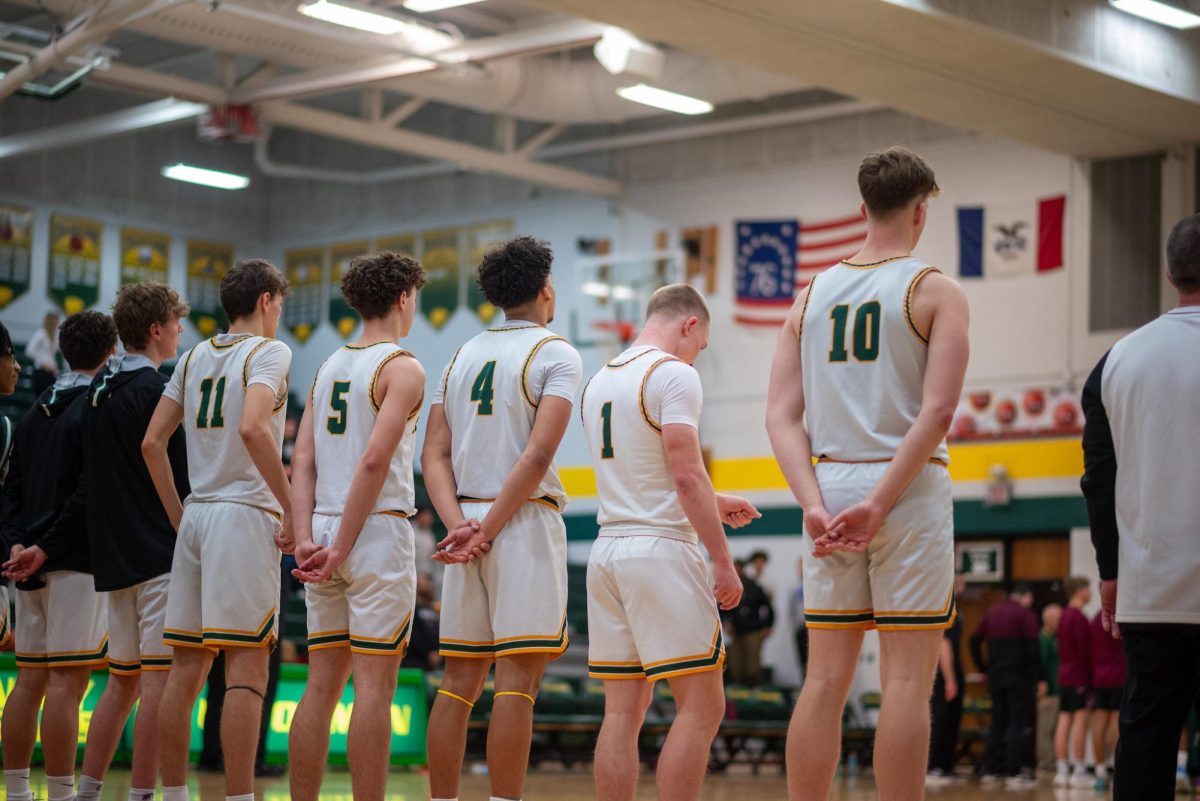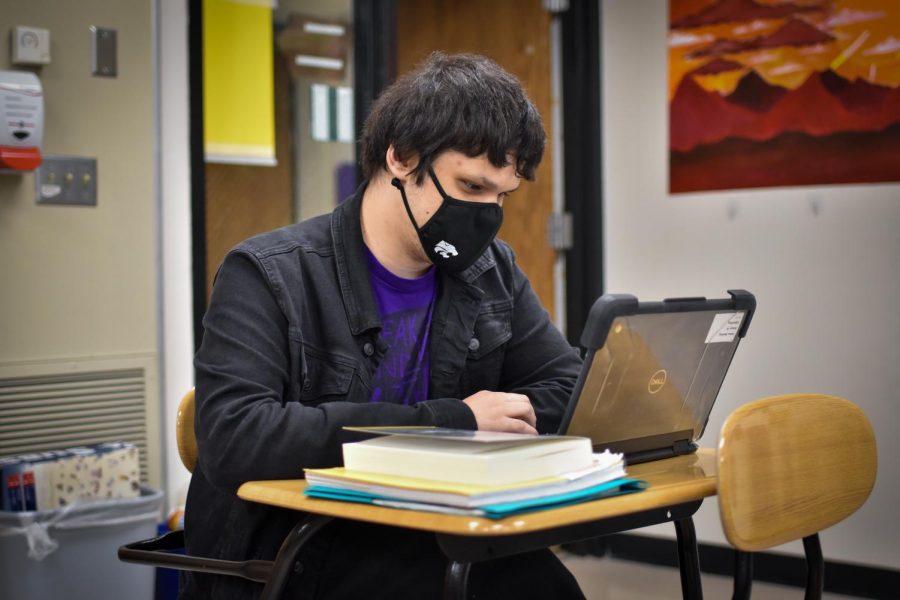Being the Quiet Kid
Author James Belding works silently in the Torch classroom.
May 26, 2022
Going somewhere new can be stressful. Add new people, harder work and higher expectations and high school can sound like a daunting experience.
When I entered high school, my hands would get clammy, my stomach would get upset and I would rehearse everything I was going to say before every conversation. Instead, I focused on not having them. But avoiding conversations only goes so far. Eventually, I had to communicate with others.
School requires communication. Life requires communication. It is an important skill to develop. This need meant I had to get used to talking with others, no matter how averse I was to it. While I always knew I would need to be comfortable talking with others, it took until my senior year to look back and realize I had become more comfortable with speaking every year.
One of my biggest challenges was group discussions. I was always afraid I would say something wrong and be seen as dumb. During my sophomore year, I realized several things. I realized first that any mistakes I made were part of learning and just another part of school. Second, I realized that many students, if not all, would not remember the mistake next week, much less any time later on. As I spoke with others more, I became more confident in my ability to communicate with others and more comfortable at Kennedy.
Speaking with teachers is a different experience entirely. Regardless of the person, a teacher is an authority figure and should be treated with respect. This made communicating with teachers stressful. While I may have been nervous, I found the staff made an active effort to get to know all their students, including me. This made communicating with teachers easier as they got to know you through class. The teachers at Kennedy provide a positive environment for students to become comfortable and grow. This allows quiet and shy students to learn, enjoy classes and grow out of their shells.
Class involves more than paper assignments. Speaking in front of an audience is a common fear. For quiet and shy students, this is even harder. When I was a freshman, I never imagined I would join Mentors in Violence Prevention (MVP) my senior year. Being a mentor requires speaking in front of a class of freshmen and teaching lessons.
While traditionally, I would not have joined MVP out of fear of public speaking, knowing people who have been impacted by the behavior we discuss, made it impossible for me to not join. Additionally, the culture of Kennedy encourages students to challenge themselves. The COUGARS motto (Courageous, Optimistic, Uncomfortable, Generous, Accountable, Relentless, Stable) is represented accurately by the Kennedy community and staff. This motto encourages students to follow their passions, even when it is outside their comfort zone.
Comfort in school is a major part of success. Students don’t just communicate for school. Friendships are important to students as well. While it tends to be hard for quiet students to make friends in such a large school, the culture at Kennedy encourages kindness, and classes allow students to connect with others and become friends.
Friendships provide a smaller, closer community for students. Without a friend, school can be a difficult, lonely experience. School feels pointless and homework more like a chore than a tool for learning. If a student cannot find motivation to do their homework, then they can face serious challenges with grades.
While it may seem like it would be harder for quiet students to earn good grades due to the interactive nature of class, quiet students can do just as well as any other student. While a quiet student may not talk during class or a discussion, they can still be an active listener and learn just as much from the conversation as someone talking. If a student does not understand class material, they should always ask for help. While this can be hard for a quiet student, the staff are flexible and can provide extra assistance to help students understand, like meeting outside class to provide advice.
Often, the easiest place to build speaking confidence is in class. If you at least speak when you know the answer, you get involved with a conversation without worrying about being embarrassed. You then get experience speaking in class without having to be involved in an extensive conversation. As the year goes on, and a student is more comfortable with the class, they can more actively participate.
As a quiet student, I have done quite well in school. I received the Above and Beyond award and academic numerals my freshman year. I received my academic letter my sophomore year, and ISASP proficient on all tests junior year. I have been on the Kennedy Honor Roll of Excellence every semester. During senior recognition night, I received the President’s Award of Educational Excellence, Academic Honors with Distinction, my academic pin, the Quill and Scroll pin, the Cougar Credit Club award, the language arts scholar medal and 4-year medals in math, science, social studies and world language.
High school can be stressful for quiet students. This does not mean they cannot do well or enjoy their high school years just as much as anyone else.





























John Belding • May 27, 2022 at 1:12 pm
Another good article James. You have certainly grown as a person in your years at Kennedy.
Becky Ditch • May 26, 2022 at 2:33 pm
Excellent article James! Thanks for sharing your experience and providing good advise to others who may have felt the same struggles. An inspiration to many. Thanks!!